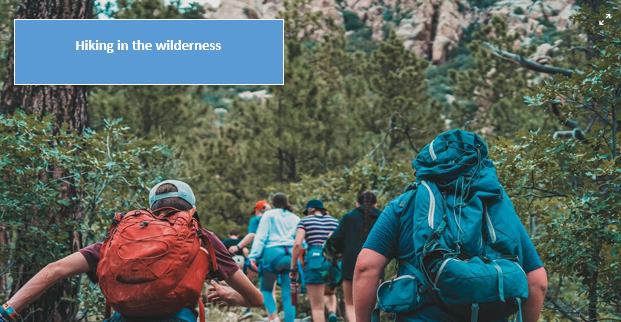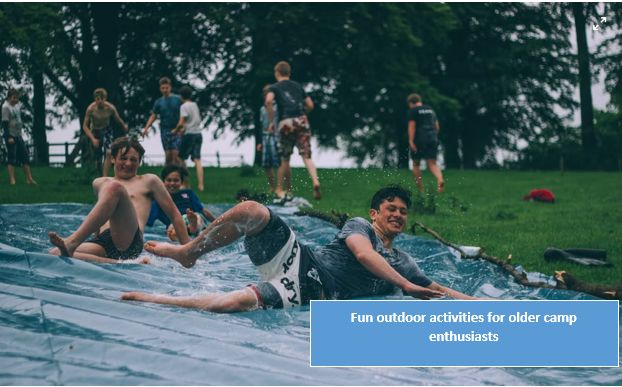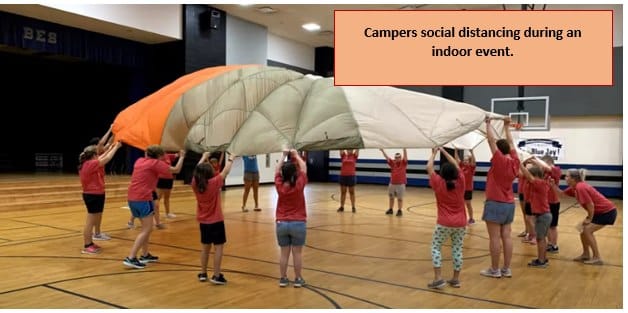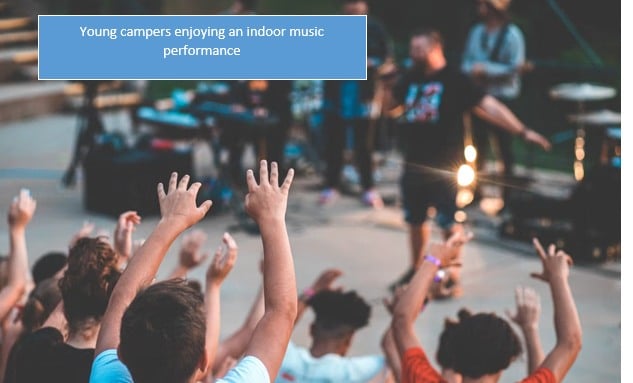Summer camp enthusiasts are looking forward to camping and engaging in their favorite activities this year. The availability of Covid-19 vaccines has shifted the direction of the pandemic in Switzerland. Further, the CDC (Centers for Disease Control and Prevention) recently released the latest Covid-19 directives, reiterating that fully vaccinated people are free to resume normal activities without social distancing or wearing masks outdoors and indoors.

Many regions across Switzerland have welcomed these guidelines, and summer camp organizers are currently working on releasing the itinerary for the next summer camping expedition. Still, the pandemic is not yet over.
As a result, everybody should exercise caution when attending camp or other social gatherings. This article shall discuss some safety tips you can adopt to protect you and your family members from catching the virus.
How does Covid 19 Affect Summer Camps?
The Covid-19 pandemic impacted summer camps, especially with prolonged lockdowns that saw many campers spend most of their time indoors. To ensure a smooth flow of services and guarantee the well-being of camping enthusiasts, camp organizers are forced to implement stringent safety measures. Some of them have had to release statements reassuring parents of their commitment to adhere to the set procedures and policies defined by the Swiss authorities, the WHO, and the FOPH (Federal Office for Public Health). Both camp organizers and supervisors have monitored the ever-changing Covid situation and usually change their processes accordingly.
Based on the guidelines refined by the FOPH, WHO, and the Swiss government, many summer camps hold webinars to ensure parents understand the set guidelines. Some of the preventative processes and strategies that many summer camping hubs are adopting include:
- Providing face masks when the need arises
- Having staff members on duty round the clock
- Providing hand sanitizers in different stations across the facility
- Conducting temperature checks
- Asking campers about any existing conditions and their international travel history
- Encouraging regular cleaning processes
At the pandemic’s peak, many camping facilities were lenient enough to offer refunds or reschedule the camping sessions until an appropriate time. Even though the pandemic has been slowly fading away and everything seems to be getting back to normal, camp organizers are not relenting to monitor official guidance from local authorities and institutions of learning. They are committed to setting up their strategy and preparing for what they know is their camper’s best interests.
Switzerland Travel Restriction for Summer Camp
Switzerland is easing Covid-19 restrictions. People coming into the country do not need proof of recovery or a negative PCR test. However, foreigners have to provide proof of vaccination to enter the country.
Wearing face masks is no longer mandatory, and neither is presenting a negative test result to access most public areas. However, wearing a mask in medical facilities and on public transport is still mandatory.
All visitors coming into the country from Canada and the US must be fully vaccinated to be authorized to enter Switzerland. Gaining entry into the country is almost impossible for unvaccinated individuals.
According to health officials in Switzerland, full vaccination means that you have received your Pfizer vaccine, booster, or second shot 270 days before arriving in Switzerland. Other vaccine brands to choose from including the single-dose option from Johnsons and Johnsons.
Switzerland accepts any vaccine so long as it has been dispensed according to the Federal Office of Public Health’s directives or one the WHO has approved. When it comes to air travel, the local gov is responsible for evaluating the adherence of domestic foreign airlines to Covid-19’s international safety regulations.
Campers planning to go skiing or mountaineering should share their itinerary with friends or family. They should also understand the laid down practices to help curb the pandemic in Switzerland.
13 Summer Camp Switzerland Safety Tips during Covid 19
Revised CDC directives have left many vaccinated individuals happy while confusing the unvaccinated ones. Many people opine that unvaccinated individuals will stop wearing masks, increasing their risk of spreading the Covid-17 virus. Here are some things that vaccinated and unvaccinated people should beware of during these unpredictable Covid-19 times.
1. Being Unvaccinated Means You are at a High Risk of Contracting Covid and Spreading it to others
The revised CDC guidelines on wearing masks are likely to have severe consequences. For example, if unvaccinated people choose to forgo the mask, they will be at a higher risk of contracting and spreading the virus.
According to Lisa Maragakis, an associate professor of epidemiology and medicine at the University School of Medicine at Johns Hopkins,
“Unfortunately, the risk to unvaccinated individuals will dramatically rise as everyone else abruptly stops wearing masks. These individuals might need to curtail their activities even further and be even more cautious until they become fully vaccinated. The bottom line is that if you are unvaccinated, you are susceptible to the virus.”
Vaccinated people have a higher chance of recovering from Covid than their unvaccinated counterparts. Get vaccinated before interacting with other campers.
2. You Won’t Need Masks When Biking or Running
Biking and running are some of the most exciting activities for camp enthusiasts. Whether you are vaccinated, you can run, walk, bike, or wheelchair roll outdoors without a mask. The risk of contracting Covid-19 outdoors is lower than is the case indoors. Engaging in outdoor activities without a mask is better because air circulation is properly.
3. Engaging in Outdoor Contact Sports is Safe
Outdoor-related sports such as soccer present a minimal risk of transmitting Covid-19.
“Studies of sporting events show that contestants on the different teams don’t spend a great deal of time in very close proximity to each other throughout a basketball game, for instance”, Maragakis says.
However, Paul Pottinger, a professor in the infectious diseases and allergy division at the department of medicine in Seattle’s branch of the University of Washington, says that off the field team gatherings could be the perfect ground for unvaccinated individuals to spread Covid. Campers participating in off-the-field activities should wear a face covering and practice social distancing to be on the safe side.
4. Outdoor Concerts and Sporting Events could Pose a Risk for Unvaccinated individuals

According to the CDC, participating in outdoor gatherings like live performances or close contact sporting events is risky for unvaccinated individuals. If you must attend these events, ensure the facility has proper and socially distanced sitting arrangements. If you are yet to be vaccinated, wear a mask during these events.
5. Hand and Respiratory Hygiene
Encourage and ensure campers practice proper and frequent hand hygiene. Camp supervisors should ensure campers understand how to wash their hands thoroughly. Both campers and staff should always wash their hands before and after eating, after visiting the toilet, after activities, and every time they use shared equipment. Other things that camp organizers should do to promote proper hand and respiratory hygiene include:
- Ensure every staff member and camper adheres to the laid down respiratory hygiene. For example, everybody should always cover their mouths with a paper towel when coughing or sneezing.
- Ensure a structured process and program to monitor and refill hand hygiene supplies.
- Provide alcohol-based hand sanitizer with up to 90% alcohol concentration in different locations across the camping facility.
- Implement respiratory and hand hygiene and disinfection practices suitable for the jungle setting during the wilderness tours, such as alcohol-based hand wipes and sanitizers.
6. Social Distancing and Cohorting
Cohorting is the idea of placing staff and campers into specific groups that remain together all through the camping experience. This approach plays an important role in controlling camp operations should a Covid-19 case be reported at camp. Restricting any connection between cohorts reduces the number of staff or campers that should be quarantined. To guarantee the success of this approach, camp organizers should:
- Communicate the duties of each cohort at the beginning of the camping event
- Practice social distancing between parents, staff, and caregivers at drop-off.
- Every cohort should refrain from interacting with members of other cohorts.
- Cohorts must remain together during all activities and mealtimes.
Staff and campers sleeping in the same bunkhouse or cabin are household cohorts and don’t have to practice social distancing or wear masks unless they are in the company of members of other cohorts.
Members of different household cohorts must wear face masks when using shared outdoor or indoor spaces. They should also maintain social distancing.
Worth mentioning is that evading quarantine can cost you up to CHF 10,000.
7. Transportation
Ensure vehicles are properly ventilated and encourage campers and staff to utilize natural ventilation methods like opening windows. Consult with a healthcare specialist who can help you understand effective strategies for boosting cross ventilation under different situations. Should any camper become sick during the day, they should be restricted from using group transportation and undergo a Covid-19 test before returning home.
Create a strategy to ensure sick campers or participants arrive home safely. Suppose a driver gets sick during the day, the facility should send another driver to replace them. They should then follow the laid down practices for ill people.
8. Handling Confirmed Covid-19 Cases
Develop policies for alerting authorities of positive cases, overseeing follow-up of cases, and alerting exposed individuals. Here are steps camp organizers should take should a coronavirus case occur in their facilities. Develop a plan for campers and staff who develop Covid-19 symptoms and those whose antigen test returns a positive result. This plan can include:
- Immediate isolation in a destined isolation area of symptomatic people and those with positive test results.
- Transporting campers home or to the medical center when necessary
- Notifying parents when their kids test positive for coronavirus or become ill
- Providing an exclusive space for campers and staff that test positive away from where other health services are delivered.
9. Wearing of Masks and Personal Protective Gear

Education providers at the summer camp must offer training on the proper and safe use, care, limitations, and mask disposal. Refer to the cantonal Covid-19 site in your region for additional information about masks. Here are some tips to make this exercise worthwhile.
Every unvaccinated camper or staff must wear masks while indoors unless a camper has special needs or a medical condition that hinders their ability to wear face-covering or masks such as:
- Inability to wear or remove their masks without being assisted by another person
- Is in an adequately ventilated area and practicing social distancing
- Eating or drinking
10. Routine Health Monitoring
Daily screening of the staff and campers is unnecessary, but they should self-screen daily before starting their day camp activities. Camp organizers should provide self-screening tools to ensure staff capture possible Covid-19 symptoms early enough.
They should also train campers using non-stigmatizing and age-applicable language to ensure they understand how to recognize Covid-19 symptoms. They should also be encouraged to inform staff members immediately they fall ill.
Before recommending further assessment, healthcare and medical staff at the summer camps should beware of any pre-existing conditions and Non-Coronavirus related allergies such as migraines, chest congestion, and severe running nose.
11. Camp Activities and Operations

Here are some factors to consider when planning camp activities in Bern and Geneva.
- The more people gather in one location, the higher the risk of transmitting Covid-19.
- Campers should engage in outdoor activities as much as possible and limit indoor activities. If campers have to participate in indoor activities, ensure the space is well ventilated.
- Restrict nonessential volunteers and visitors
- Open windows and doors as much as possible to facilitate proper circulation of fresh air.
There is a high risk of circulation of respiratory droplets during activities involving voices, such as acting or singing, or where wind instruments are used. Campers should conduct such activities outdoors and in adherence to social distancing protocols.
12. Building Regulations
Suppose the camping activity occurs in an amenity that is reopening after remaining shut for a long time. In that case, camp organizers should maintain all water and ventilation features and systems, such as drinking fountains and sink fountains. Doing so ensures they are ready for occupancy and use and in proper working conditions throughout the camping period. Here are some things you can do to improve or increase ventilation and encourage proper fresh air circulation.
- Open windows and doors as long as it is safe to do so
- Ensure proper functioning of the central air filtration system. Seal any edges across the filters and ensure they are well installed and within service life.
- Ensure ventilation systems are in proper working condition to boost the quality of indoor air
- Consult a professional to determine what is working and identify equipment requiring replacement in the facility.
- Keep air filtration systems running round the clock whenever possible to promote air exchange inside the building
- If you plan to perform any activities indoors, keep windows and doors open to increase fresh air circulation.
13. Staff Considerations
Implement non-inflicting and flexible leave policies to allow sick staff to remain at home. Leave policies to help account for:
- Staff who report Covid-19 related symptoms
- Staff members who have tested positive for coronavirus
- Staff who have had their Covid-19 tests but results are still pending
- Employees whose children have closed school due to an increase in Covid-19 cases in their schools
- Any employee who has had close contact with an individual with Covid-19 symptoms
Camp organizers should encourage their staff to be fully vaccinated before the camping event. If the staff experience any side effects, supervisors should be kind enough to give them a few days off until they recover fully.
Finally
As Covid-19 cases drop, the CDC and WHO are relaxing regulatory measures. However, that does not mean that summer camp organizers should be lax. The virus is still here, and every camp organizer should implement prevention measures to ensure campers are safe during their stay at the camp facility.
These tips are ideal for camp organizers and parents who want to enroll their children in camp this summer. Summer camps come with numerous benefits, such as promoting a child’s mental health. However, the environment should be safe for campers to enjoy those benefits. A reliable camping facility will provide a FAQ page on their website to help parents find answers conveniently.









